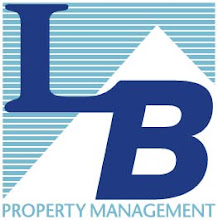You should make note of the items below because property owners that do not adhere to the ordinance will be fined.
RULES REGARDING USAGE:
WATERING THE LANDSCAPING:
- Automatic sprinkler systems may only be used on Monday's and Thursday's. Using the systems on any other days will result in a warning letter on your first offense. The second offense will result in a $100.00 fine and the fines increase to $600.
- You may not water, irrigate landscaped areas between the hours of 9:00 am and 4:00 pm on any day, including Mondays and Thursdays.
- You may use a hose and hand water on days other than Monday and Thursday before 9:00 am and after 4:00 pm but you cannot leave the hose unattended.
- When using an automatic system you may only water for 10 minutes per watering day per station.
- You may not water in a manner that allows excess or continuous water flow or runoff onto an adjacent sidewalk, driveway, street, gutter or ditch.
- You can be cited and fined for watering during periods of rain even.
DECORATIVE FOUNTAINS, PONDS, LAKES AND OTHER AESTHETIC WATER FEATURES
- You must have a recirculation system if you are going to use water to fill, clean or maintain water levels.
WASHING CARS:
- Nobody is allowed to wash a car with a hose that does not have a self closing water shut off device.
WASHING SIDEWALKS, WALKWAYS, DRIVEWAYS AND PARKING AREAS
- You may not use a hose to wash these areas unless you are using a Department-approved water conserving cleaning device. (A simple Spray nozzle does not qualify)
NEW RATES:
The new rates go into effective June 1, 2009 as well. At this time the Tier 1 allotment for each property will be reduced by 15%. This means that if your property is presently using all of the Tier 1 water allotment you will now be charged Tier 2 rates for the last 15% of the water used. This could be a substantial increase because Tier 2 rates are set to be increased by 44% as part of the new rate plan. All DWP customers must do their best to reduce their overall usage by 15% to avoid paying substantially more for the water each month. If you do manage to reduce the usage by 15% below your current Tier 1 level you should see a savings. If you want to determine your Tier 1 level you can do so on the DWP website lapwd.com . You will need your customer number and address. You can also find tips to reduce your water consumption on this website.
I recommend that you or your resident manager distribute a tip sheet to all your tenants. Most people want to preserve the environment and often just need a reminder. Owners should also routinely inspect every unit to be sure there are no water leaks, running toilets and such that are wasting water. A running toilet can waste hundreds of gallons of water each day. Hoping everything is OK because your tenants have not pointed out the issue will surely result in unnecessarily high water bills after June 1, 2009.
The DWP website lapwd.com has information about these new laws and rates. In addition to this site. You may also view articles recently published on the topic at
http://www.latimes.com/news/local/la-me-lawn-watering23-2009apr23,0,2958435.story
http://www.latimes.com/news/local/la-me-lawater18-2009apr18,0,2991632.story?track=rss.
A summary of the ordinance can be found on the DWP website as well or by clicking on this link.
http://www.ladwp.com/ladwp/cms/ladwp010964.pdf




